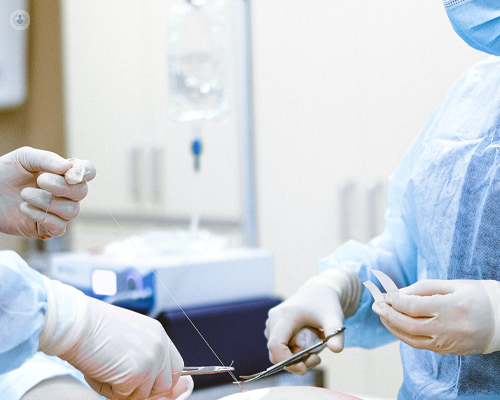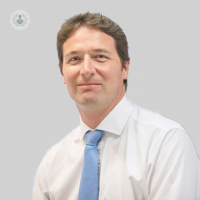Part two: Plastic surgery during the COVID-19 pandemic
Escrito por:Aesthetic and reconstructive plastic surgery, like various other medical specialist treatments and operations, slowed down - or depending on urgency - stopped altogether when the COVID-19 pandemic was at its’ height.
In part two of this double article, prominent consultant plastic and reconstructive surgeon, Mr Kelvin Ramsey, discusses the changes to plastic surgery procedures during the pandemic and what happens if patients experience COVID symptoms close to their operation date.
In part one, find out more about how the pandemic initially affected plastic surgical procedures and how healthcare providers expertly resumed operations in a completely different landscape.

How has the process of surgery changed during COVID?
The pandemic has changed the health service, both the private and the NHS sectors, permanently, I would suggest. The way that patients are consulted about the risks from the virus pre-operatively, the patient pathway both through the hospital and the outpatient clinics to ensure all appropriate PPE measures are put in place to ensure the safety of the patients and the staff. They are routine measures now.
Unless coronavirus completely disappears, I think these measures are going to be with us for many years to come. Essentially from a patient point of view, we will lead them through every step of the way so they don't need to worry about remembering anything. They will be guided throughout the process and they should be reassured that they should be no more likely to exposed to coronavirus within a hospital environment than they will walking down the street with the measures that have been put into place.
Will I be able to have surgery if I have symptoms of COVID-19 around the time of my procedure?
This is a very important question. The early data that came out of China in Spring 2020, and then further data that came from the entire international surgical community in the early stages of the pandemic did show, that if you have coronavirus at the time of an operation, this is dangerous. You were likely to get much worse symptoms from coronavirus if you were recovering from an operation, because your immune system is slightly reduced as a result of recovery from surgery.
Therefore, we take many precautions to make sure that patients are isolated pre-operatively. At the moment, in the vast majority of hospitals this is between three days and a week. And there are testing procedures to ensure that you don't have coronavirus when you come into hospital for your surgery.
There are a number of questionnaires that patients are asked to ensure they don't have any symptoms at the time of their surgery or a few days prior to their operation, just to make sure we don't let anyone slip through the gaps and expose a patient to an operation when they have the virus.
A further follow-on question is, 'If I have COVID, and I'm testing positive but I'm asymptomatic, can I still have the operation?', I'm afraid the answer is no, because you may be asymptomatic at present but once you're in the postoperative period you may become symptomatic and more unwell.
Another consideration from that, is 'How long do I have to wait for my next surgery if I've got COVID.' And in my practice, the answer to that question is at least seven weeks. This is because we know that, from the long-term data, you will have fully recovered. Also, you aren’t as likely to have an adverse outcome from your surgery especially if you've waited seven weeks from the resolution of your symptoms and have a negative test result.
Want to know more about the services Mr Ramsey offers for patients considering plastic surgery for aesthetic or reconstructive reasons? Visit his Top Doctors profile to arrange an appointment.


